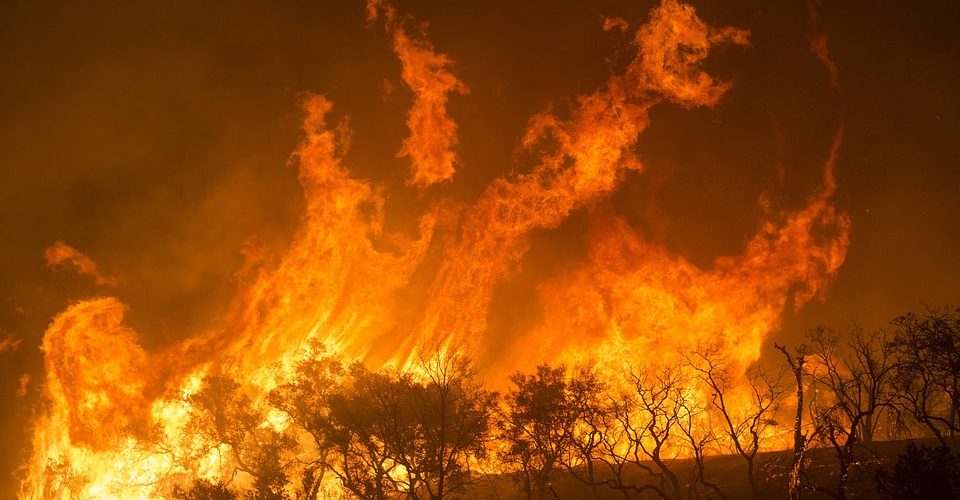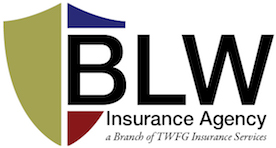The Golden State is renowned for its beauty, but it’s also well known for various types of disasters. While yearly wildfires take most of the headlines these days, California residents also need to prepare for earthquakes, mudslides, and common issues with water damage, among other potential disasters. While it’s impossible to completely avoid these dangers, Californians can (and should) have basic emergency plans ready to meet most unexpected events.
Basic Preparedness
Although you can’t protect against and respond to every emergency the same way, most emergencies require a common level of preparedness.
At a minimum, you’ll want to ensure you have the following ready:
- An emergency escape plan
- Spare clothing and toiletries in a to-go bag
- Blankets
- 72-hours worth of non-perishable food items and water for each family member (for water, that’s 1 gallon per day per person)
- Emergency contact information for family and friends
- A full fuel tank for your vehicle and spare fuel
- Emergency mobile battery packs for mobile devices
- Flashlights and two-way radios with fresh batteries
- For electric vehicle owners, keep your battery charged as often as possible
Make sure your emergency escape plan includes the best routes out of your home, neighborhood and city, as well as a dedicated location. If you have a family, ensure you have a dedicated meeting point so that every family member knows where to go in case an emergency keeps everyone away from the home.
Preparing for wildfires
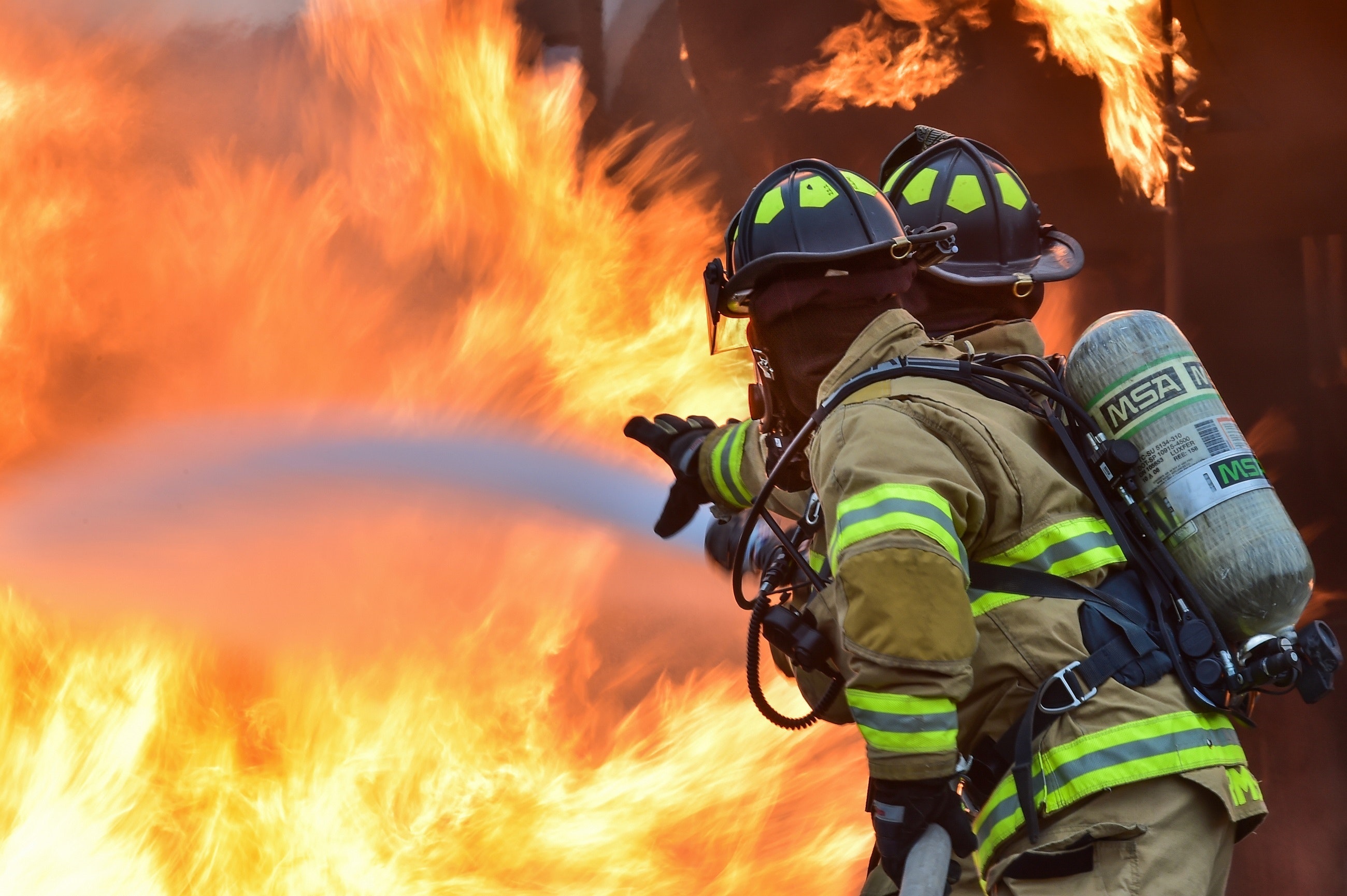
Evidence points strongly to climate change driving an increase in the number and severity of wildfires in California. One recent study found California’s wildfires are 8 times larger than they were in the 1970s. The study also reports the number of acres burned each year has increased by over 500%.
As wildfires are now a primary concern, there are several ways California residents can prepare for them. First, if you own a home, you’ll want to take precautions that minimize the risk of fire damage to the property and decrease the fire’s ability to spread. This can include:
- Removing dead, dying, and dry brush from around your home (create a 100-foot clearance)
- Keeping your lawn mowed short and removing grass clippings
- Spacing your trees and shrubs at least 10 feet apart to make it more difficult for fires to spread
- Cleaning gutters and clearing debris from your roof
- Trimming back branches that hang over your home
- Replacing wood fencing with metal, or creating a metal or stone buffer between your wood fence and your home
- Keeping firewood and heating oil storage tanks 50 feet or more away from your home
- Introducing more drought-resistant, native vegetation
If a wildfire occurs in your area, you may or may not be asked to evacuate. Although some evacuations are voluntary, it is recommended that you evacuate if you can. Wildfires can be unpredictable, and when combined with strong winds, can change direction and move far faster than anticipated.
Pay close attention to fire warnings and emergency warning systems on TV, mobile phones, and radios. Back your car into the garage or parking space, if possible, to make it easier to escape. Keep your car keys ready, or place a key in your car’s ignition so you can make a faster escape should an evacuation order be issued.
Note that wildfires in California are most common during the late summer and early fall. Months of dry and hot weather make plants more flammable. And while fires can occur naturally, most of California’s fires are currently caused by human activity.
Preparing for mudslides landslides
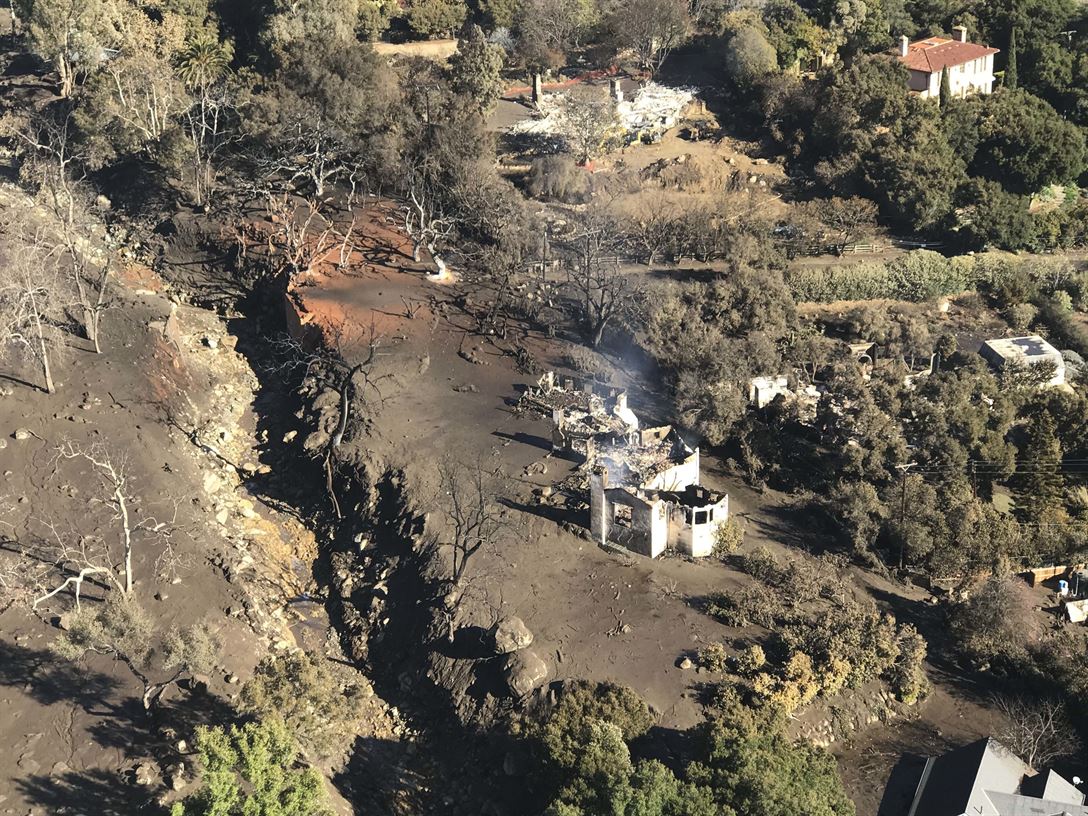
Source: US Department of Defense
Wildfires have a secondary impact on the environment by making the ground weaker and more prone to mudslides. As most of California’s wildfires occur directly prior to the state’s rainy season, mudslides and landslides are also now a growing concern for California residents.
There is little you can do to protect your home and property from damage against mudslides or landslides. Planting natural vegetation and increasing the plant cover around your home can help reduce the risk of a mudslide directly around your property, but you can’t manage the ground you don’t own. As well, the full weight of wet dirt and soil following heavy rains may be more than the ground can bear.
We recommend you be aware of mudslide warning signs, and pay close attention to emergency services. If an evacuation warning is issued over a mudslide risk, follow the recommendation. Many individuals take mudslides less seriously than wildfires but can mudslides result in serious injury and loss of life.
Preparing for earthquakes
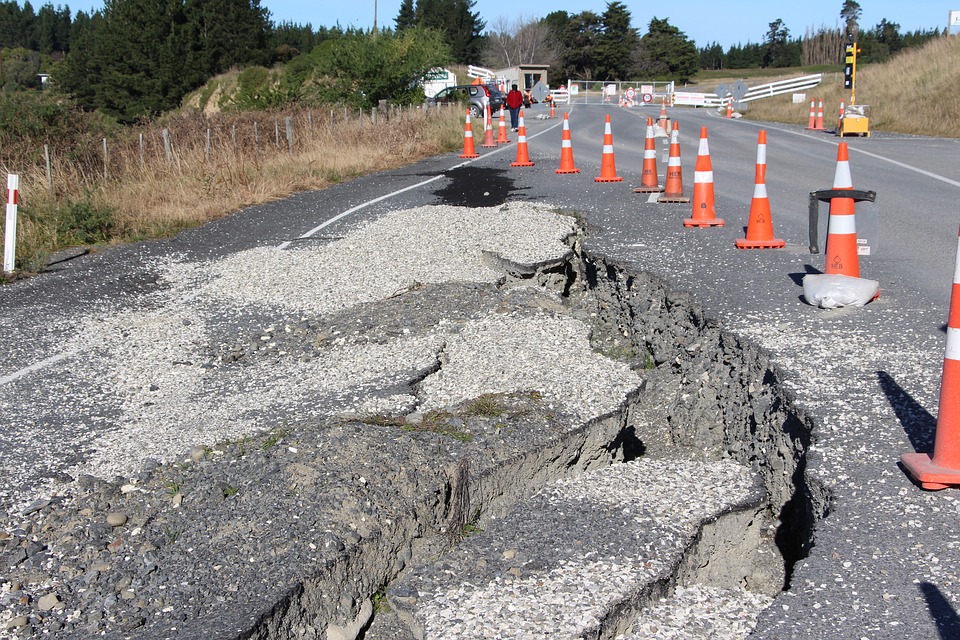
California is known for its earthquakes. Southern California alone experiences around 10,000 earthquakes each year. Thankfully, most are small. However, some earthquakes can cause massive damage to homes, roads, and bridges, and other critical infrastructure.
In the case of an earthquake, you may only have a few minutes of warning time, if any. Ready.gov suggests the following for earthquakes:
- If in a car, stop and pull over. Do not stop under a bridge or overpass
- If in bed, face down and place a pillow over your head
- If outdoors, stay away from buildings and trees
- Do not go into a doorway
- Do not run outside
You can prepare your home by securing large furniture, such as bookcases, to the wall, applying safety film to windows (to prevent glass shatter), and anchoring water heaters and other large appliances. To reduce the risk of fires, make sure your home has an emergency gas shut-off device that triggers during an earthquake.
Preparing for water damage
While flooding can be an issue for some in California, internal water damage is the primary cause of loss for homeowners. Water damage can occur from multiple sources, including heavy rains, humidity, or poorly-maintained pipes and plumbing.
To help reduce losses from water damage, consider doing the following:
- Examine your home’s interior and exterior for signs of leaking water pipes, such as discoloration in walls, ceilings, and floors
- Look for warping and peeling of drywall or paint, which may be a sign of moisture build-up behind your walls
- Re-caulk potential spots where humidity and moisture can come in, including windows and exterior walls
- Replace water heater hoses, as these can degrade and leak over time
- Flush your water heater to remove sludge that can cause malfunctions
- Check and reduce your water pressure if necessary to avoid pipes bursting
- Have your roof inspected for holes and fix roofing tiles as necessary
- Clean debris from gutters and spouts
- Install water and leak detection devices
Finally, always make sure to monitor your water bill for irregularities. If it starts to become too high, you may have unknown water leaks somewhere in your water system.
Secure insurance sources for financial security
Before any disasters hit, you may want to ensure your personal property is financially protected against major loss and damage.
Homeowners should regularly update their homeowners’ insurance policy. If you’ve made additions to your home, for example, you may have a gap in coverage if you haven’t updated your policy. Should your home be damaged by a disaster, your insurance provider may not offer compensation for the part of your home not covered under the policy.
Additionally, keep in mind that earthquakes and mudslides are not typically covered by a homeowners insurance policy. You may need to consider purchasing a separate policy for these perils or getting an add-on to your existing homeowners insurance policy .
Finally, car owners should review their existing coverage. Damage to your vehicle may not be covered if you only carry the minimum level insurance required by California:
- Bodily injury: $15,000 per person / $30,000 per accident minimum
- Property damage: $5,000 minimum
- Uninsured motorist bodily injury: $15,000 per person / $30,000 per accident minimum
- Uninsured motorist property damage: $3,500 minimum
For the best protection against damage from natural disasters, you’ll want to consider a comprehensive coverage package, instead.
Unsure whether your personal property if fully protected against major loss events? Give us a call at 650-873-1255 to get expert advice on how insurance can help mitigate risks in California.

